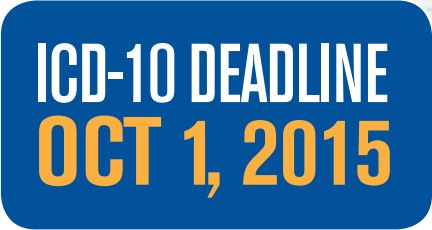Blog Articles
Wednesday, September 30th, 2015
 You may have noticed that, with the deadline for transition looming near, ICD-10 has become a top concern. It is one of the leading topics at this year’s AHIMACon in New Orleans, and opinions and recommendations have been popping up all over the internet.
You may have noticed that, with the deadline for transition looming near, ICD-10 has become a top concern. It is one of the leading topics at this year’s AHIMACon in New Orleans, and opinions and recommendations have been popping up all over the internet.
What is ICD-10?
ICD is the much-abbreviated acronym for International Statistical Classification of Diseases and Related Health Problems. The numerical designation “10” simply indicates that it is the tenth version of this classification system. Essentially, the ICD-10 is a series of codes, designating everything from diseases to symptoms to abnormal findings. The World Health Organization uses this classification system to track medical information.
This October, ICD-10-CM/PCS implementation will be mandatory in the United States. This means that all health care providers and institutions who have been relying on ICD-9-CM must transition over to the newer, revised version.
The ICD-10 Debate
The much-awaited transition period to ICD-10 hasn’t been smooth. There are a number of concerns that have cropped up. As with anything, it has become a cost-benefit discussion, with advocates on both sides.
New codes mean new software, new training, and new bugs. Everything from claims and submissions to patient documentation may be impacted by this new series of codes, and all of that translates to a potential high cost.
The sheer amount of effort that goes into transitioning from ICD-9 to ICD-10 is substantial. Ensuring that the technology and staff are adequately prepared is a massive undertaking – but, it is one that has been looming in the distance for 6 years.
The new ICD-10 codes are more specific than the ICD-9 codes. Too specific, some may argue, worried that the new codes may be over-complicated. On the other hand, a new level of specificity may allow for more efficient tracking overall. Also, as medical knowledge has increased, it has become important to reflect that in the claims and other databases.
In the end, ICD-10 is coming, and health care practitioners and institutions have been bracing themselves for impact, regardless of where they stand on the issue. It’s no doubt why it has been such a hot button issue recently, and it will surely remain one for the foreseeable future.